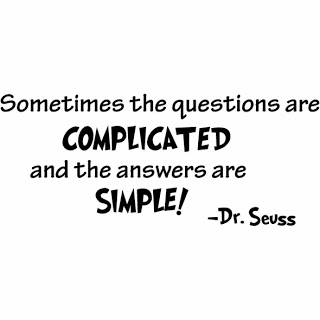Everything I needed to know as a physician about weight loss, I learned before grad school.

When confronted with a controversial topic online, I don’t like to write gut-reaction blog posts. I’ve been digesting this one for a while (perhaps too long as the hype seems to have settled considerably and the wave has all but passed). My perspective on weight-loss, fitness and medicine is somewhat unique. Regardless of whether it’s considered reconstructive or “cosmetic”, patient come to see me not only for functional problems, but aesthetic ones as well. In my world, the distinction between form and function is not a sharp line. Every “reconstructive” surgery is an aesthetic one, or at least, has an aesthetic component. While I don’t necessarily get a lot of questions about diet and heart disease, you can bet that if it has to do with fat loss or appearance and diet/activity, I’ve gotten the question in some shape or form.
So when posed with the question, “How much should a physician know about nutrition and fitness?” I can’t help but retort with the question, “How much does anyone really know about nutrition and fitness?” and the more controversial, “How much of the _additional_ information that the purported nutrition and diet ‘experts’ know is really necessary?”
Much of this issue has to do with baselines. A patient with a baseline of moderate to high physical activity and general “food consciousness” is going to pose a more complex question that will require a more complex answer. But, by and large, I don’t get complex questions from patients who are, for the most part, healthy and fit. I get complex questions from people who aren’t healthy or fit. And every time, my job is to simplify their problem.
I keep referencing back to this post, “Death by sand”, because it has become such a guiding principle for almost everything that I do. What do you think of low-carb diets? Should I use vitamin E oil on this cut? Do you know anyone that will administer the hCG diet? Should I use butter or margarine? Will pomegranate juice help me? What is this acai berry everyone keeps talking about? Will kettlebells help me? Does Oil of Olay really prevent the seven signs of aging?
As a physician, I think it’s _useful_ but not necessary to know about popular trending topics in nutrition and fitness. It’s useful because it creates a common language with which you can communicate more effectively with your patient on a relatable level. However, the problem isn’t that physicians need more education on different macronutrient ratios, or core-stability, or Tabatas, or HIIT. The problem is that patients think that these things are equally important to everyone, including themselves, when their baselines are basically sedentary with no food awareness. There is absolutely no amount of knowledge that will adequately answer the question, “Should I be on a low-carb diet?” when the asker of the question doesn’t even know of alternative foods that could have lower carbs (other than straight-out meat and/or fat).
The reality is that while there are plenty of anecdotes on the Internet about people who claim to have gained body mass while in a caloric deficit, I assure you that if it was actually happening on any verifiable level, it would instantly be published in the highest of medical journals as a case report. And there would be something dreadfully wrong with that person’s physiology (and possibly individual laws of physics.) Such a case report has not yet been generated (to my knowledge).
There are a myriad of hormones and signalling pathways in the human body. That’s a myriad of possible internet diet variations. We still haven’t completely elucidated everything there is to know about insulin. But there is still only one hole in the human body in which calories can conventionally go and be absorbed (and for the record, the nose and mouth come together in the oropharynx, so it’s still just one hole. And no, calories are not generally absorbed through the rectum.)
So when confronted with the question, “Should I go on a low-carb diet?” from an overweight patient whose maximum regular physical activity consists of walking to and from her car, who is interested in a surgical procedure, my response is generally, “How do you know you’re not on one already?” And then we have a small chat about food awareness, and just eating a lot less (a big rock) as opposed to whether s/he has to give up bread and pasta entirely (a grain of sand), and whether rice counts as a carb (a really tiny grain of sand). Did I need to go to “eat less” class in medical school for that? No.
What is the most effective exercise for someone who wants to start exercising? It’s ANY exercise they’re willing to do AND enjoy consistently.
When it comes to the vast majority of patients asking doctors about diet and physical activity, the answers are usually simple. The barrier is not so much about acquiring more knowledge as it is getting them (and sometimes, us) to realize it.